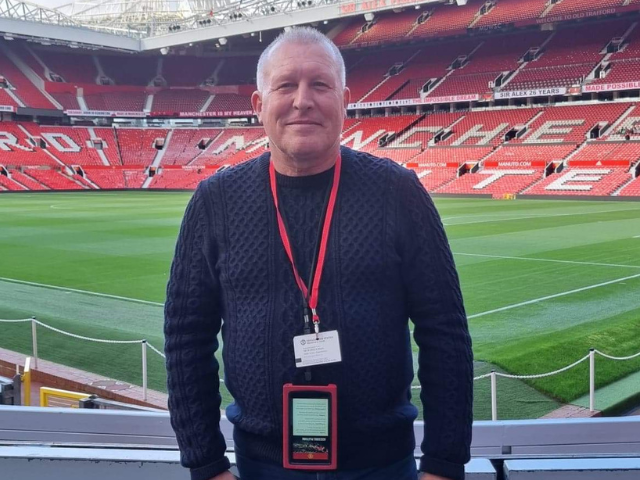
Craig's involvement in research
Following a severe case of COVID-19, Craig Greenstock, a 61-year-old retired NHS worker from Pontypridd, has dedicated his time to help shape a research project aimed at supporting those who faced trauma after being treated in intensive care.
The VR-READY study is investigating the potential use of immersive virtual reality (VR) to help patients with post-intensive care syndrome (PICS) recover from the trauma.
Craig, who experienced the severity of PICS and continued to live with its symptoms, has become a patient representative in the study. By sharing his opinions and thoughts, he is helping the researchers to design the study in a way that will be beneficial for people who are affected by the condition.
At first, Craig said that he was ‘sceptical’ and ‘hesitant’to help, as he had never been involved in research before.
He added: “I felt that I wanted to be involved in it, as it’s something very close to me and my family with regards to the care and the treatment I received from the NHS. Some of the people who are involved in the study played a personal role in my care when I was in the hospital.
“I just wanted to give something back to them and I felt this was the appropriate way to do it.
“It is a great honor to be involved in this study, especially when working alongside consultants and nurses who save lives every day. I have a deep respect for them and the important work they do.”
Dr Kim Smallman and Cheney Drew, co-leaders of the study alongside Dr Ceri Lynch, said:
“The inclusion of Craig in the VR-READY study team has been instrumental in ensuring our research is fully centered on the needs of intensive care survivors.
“Craig’s input has been crucial to the development of our focus group activities, leading to the inclusion of items that had not been considered previously by the study team, as well as, providing invaluable guidance on how the study should be run to maximize accessibility for a broad range of people.
“We believe including lived experience of someone like Craig allows us, as researchers, to investigate things that matter the most to patients and produce outcomes which are likely to have the most meaningful impacts on their general wellbeing.”
Craig added:
“Research plays an important part in our everyday lives by helping us to grow our knowledge. History tells us that research is vitally important; without research, scientists wouldn't have developed many lifesaving procedures or discovered drugs and antibiotics which can treat a range of serious medical conditions such as MMR, Smallpox, COVID-19 and the Flu.”
Every week, hundreds of people help make health and social care research happen in Wales. Become one of them today and join our patient involvement community.